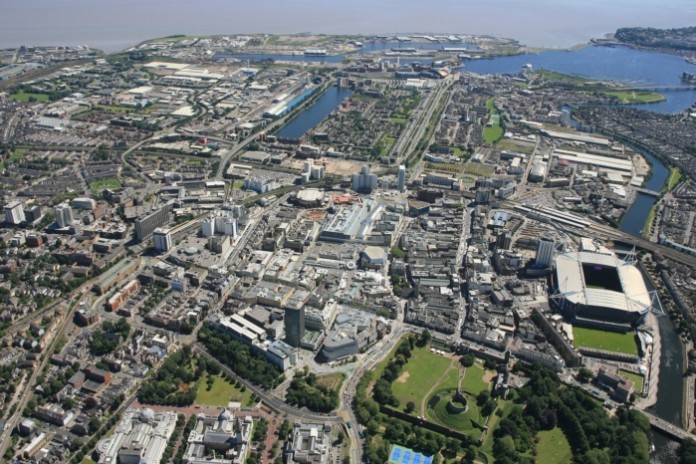Three development programmes supporting key strategic themes of housing, skills, and digital connectivity within the Cardiff Capital Region (CCR) have been agreed.
The programmes, which were formally agreed by the CCR Cabinet at its meeting yesterday (February 12), underpin the objectives and vision of CCR City Deal.
Details of the development programmes are as follows:
Regional Housing Investment Fund – recognising the need for more homes to be built in the region, the Regional Housing Investment Fund aims to support house building, ranging from larger builders and developers on stalled housing sites on former industrial sites, through to small builders, community builders, custom builders and regeneration specialists, on small sites across the region.
The fund also aims to help stimulate the SME building sector across the region by providing loan development finance and launching a Custom Build Scheme, releasing smaller plots of public sector land with a full package of support for SMEs to deliver new homes in the communities.
Skills for the Future Project – this project supports the Skills and Employment theme and will provide region-wide school engagement with pupils and parents to offer careers advice and guidance, support for businesses to address barriers of participation, including a skills investment fund and a commitment to support delivery of over 10,000 additional apprenticeships, graduate internships and upskilled employees in the private sector.
The project builds on the creation of the CCR Skills and Employment Board to help develop a skilled workforce and tackle unemployment, and to ensure skills and employment provision is responsive to the needs to local businesses and communities.
Digital Strategy – underpinning the theme of Connecting the Region, the digital strategy proposes the development of defining the region as a “smart city region” driving innovative and disruptive solutions to attract private sector partnership and investment.
The digital strategy incorporates eight digital and connectivity elements, which includes Welsh connectivity, regional connectivity, community fibre connectivity, regional and community WiFi, mobile 5G access, maximising the potential of Open Data.
Councillor John Thomas, the CCR’s Portfolio Co-Leader on Regeneration and Housing Development, and Leader of Vale of Glamorgan Council, said: “Across the region we need more homes to be built, and finance can be a barrier, particularly for small and medium sized builders. Investment in new housing will strengthen the local economy, in addition to having a positive impact on communities and residents.
“The Housing Investment Fund will be a flexible source of funding administered by the Cardiff Capital Region Cabinet. It would also aim to maximise the use of other aligned funding schemes which are available. For example, Welsh Government and the Development Bank for Wales have a number of funding streams and potential initiatives which are entirely complementary to such a Housing Investment Fund.
“To date CCR Officers have had very positive discussions with senior Welsh Government officials to ensure that any new Housing Investment Fund makes best use of the public funds currently available before accessing City Deal Funding. This means that by working together, greater impact can be secured.”
Councillor Debbie Wilcox, CCR portfolio leader on skills development, and Leader of Newport City Council, said: “The unique selling point of the Skills for the Future project is fourfold. Such additional employment and training will enhance innovation, productivity and economic growth in the Cardiff Capital Region while school engagement will ensure that regional skills supply becomes more aligned with the skills that employers in the region are demanding.
“Investment in developing the skills of the current and future workforce of the Capital Region is a priority for the Cardiff Capital Region City Deal and vital to improve both competitiveness and inclusion.”
Councillor Anthony Hunt, CCR Portfolio Co-Leader on Business and Innovation, and Leader of Torfaen County Borough Council, said: “Digital connectivity and capability is a fundamental requirement to develop a vibrant, modern and prosperous capital city region that is genuinely competitive on a global scale. The availability of world class digital connectivity is a major factor in attracting the sort of businesses that we need in the region to provide sustainable, high wage jobs.
“Existing businesses in the city region have much to gain in supporting the development of the sort of digital ambition outlined in the digital strategy, and it is anticipated that, as business cases are developed on each phase by the CCR City Deal, we will be able to lever in a considerable amount of private sector investment.”
The CCR City Deal aims to unlock significant economic growth across the CCR, which includes the ten local authorities of Blaenau Gwent, Bridgend, Caerphilly, Cardiff, Merthyr Tydfil, Monmouthshire, Newport, Rhondda Cynon Taff, Torfaen and Vale of Glamorgan.
The objectives of the CCR City Deal are to create jobs and boost economic prosperity by improving productivity, tackle worklessness, build on foundations of innovation, invest in physical and digital infrastructure, provide support for business, and ensure that any economic benefits generated as a result are felt across the region.
The CCR Regional Cabinet has already agreed to invest £37.9 million to support the development of a compound semiconductor industry cluster in south-east Wales.
The funding is being generated from the Cardiff Capital Region City Deal’s Wider Investment Fund – and was the first such investment since the £1.2 billion programme was formally signed by the leaders of the ten local authorities in the region on March 1 last year.
The project is expected to leverage up to £375m of private sector investment over the next five years, and the creation of up to 2,000 high value, high-tech jobs, with the potential for hundreds more in the wider supply chain and cluster development.
Last month, the Regional Cabinet also agreed in principle to invest £40m in a proposed £180m transport hub at Cardiff Central Station.



















